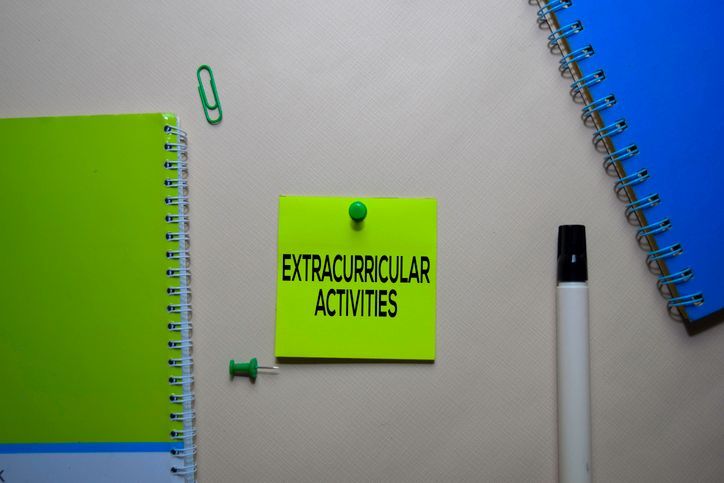This page is licensed under Creative Commons under Attribution 4.0 International. Anyone can share content from this page, with attribution and link to College MatchPoint requested.
Rethinking Extracurriculars: 3 Shifting Trends In What Colleges Look For
High school students today are under pressure to fill every spare moment with activities, but admissions officers are making it clear: quality matters more than quantity. Colleges want to see students who pursue activities with character, purpose, and intellectual curiosity, not just a long list of clubs. They value authentic contributions to community, whether that means leading a service project, mentoring peers, or addressing real needs close to home. Just as important, they look for connections between extracurriculars and academic interests, which can strengthen fit-to-major in the admissions process.

Here’s what you need to know about how extracurriculars are being evaluated today—and how your student can stand out:
Quality Over Quantity
Gone are the days when having 10 or 12 activities on a list was considered impressive. As Jeffrey Brenzel, former Dean of Undergraduate Admissions at Yale, put it, “We’d much rather see a student who is deeply committed to and has shown leadership in one or two activities than a student who has dabbled in 10 or 12.”
This is an important shift for families to keep in mind. A student who spends three years mentoring younger students in math, building real skills in tutoring and leadership, will make a stronger impression than someone who briefly joined a handful of clubs without real engagement.
The lesson is simple: colleges want evidence of initiative & impact, rather than participation. If your student sticks with something, takes it seriously, and shows growth over time, it will stand out.
Character and Purpose
Admissions officers are looking for activities that reveal character, not just achievements. They want to see the spark behind the involvement. What motivates your student? How have they grown because of this experience? What impact have they had on others?
For example, a student who organizes a food drive every year at their church or school is not just “volunteering.” They are showing leadership, initiative, and a willingness to meet real needs in their community. Another student who spends summers working at a local pool might highlight not just responsibility, but also the joy of teaching kids to swim, or the resilience developed through early mornings and long days in the sun.
It is these stories—rooted in character and purpose—that make extracurriculars memorable in the admissions process.
Contributions to Community
Making a difference in the world around you has become one of the clearest ways for a student to stand out. A study by the National Center for Education Statistics found that civic engagement activities like volunteering have steadily increased over the past two decades, and admissions officers are paying close attention.
Stu Schmill, Dean of Admissions at MIT, emphasizes that it’s not about doing the most impressive-sounding things, but about making a real impact. That could mean organizing an environmental club at school, tutoring peers in a subject they struggle with, or starting a small business that provides a needed service in the community.
When students reflect on how their contributions made a difference, admissions committees see someone who is engaged, thoughtful, and ready to add value to a college campus.
Fit-to-Major and Intellectual Curiosity
Perhaps the most overlooked aspect of extracurriculars is how they connect to a student’s academic interests. Colleges are increasingly evaluating “fit-to-major”—how a student’s activities align with the field they want to study.
At the University of Texas at Austin, for example, applicants are reviewed through a fit-to-major lens. A student applying to the Cockrell School of Engineering who has engaged in robotics, coding projects, or summer math research will stand out more than one whose activities do not reflect their intended major.
Stanford’s admissions office states it directly: “Depth, not breadth, of experience is most meaningful to the admissions committee.” This means that a student interested in literature might stand out by writing for the school newspaper, entering writing contests, and starting a book club. Someone considering environmental science could deepen their profile through conservation volunteering, climate research projects, and ecology competitions.
Even undecided students can show intellectual curiosity. Exploring subjects outside the classroom—whether through independent projects, competitions, or summer programs—demonstrates a love of learning that colleges value.
How Parents Can Support
As a parent, it’s natural to want your teenager to do more. But the most supportive thing you can do is help them identify what really matters to them.
Encourage them to:
- Choose activities they genuinely enjoy, not those that “look good.”
- Commit over time, showing growth and leadership.
- Look for ways to connect their activities to their academic interests.
- Reflect on how their involvement has shaped them as a person.
Your role is to remind them that the goal is not to check boxes, but to discover themselves. Colleges are interested in who they are becoming, not just what they are doing.


